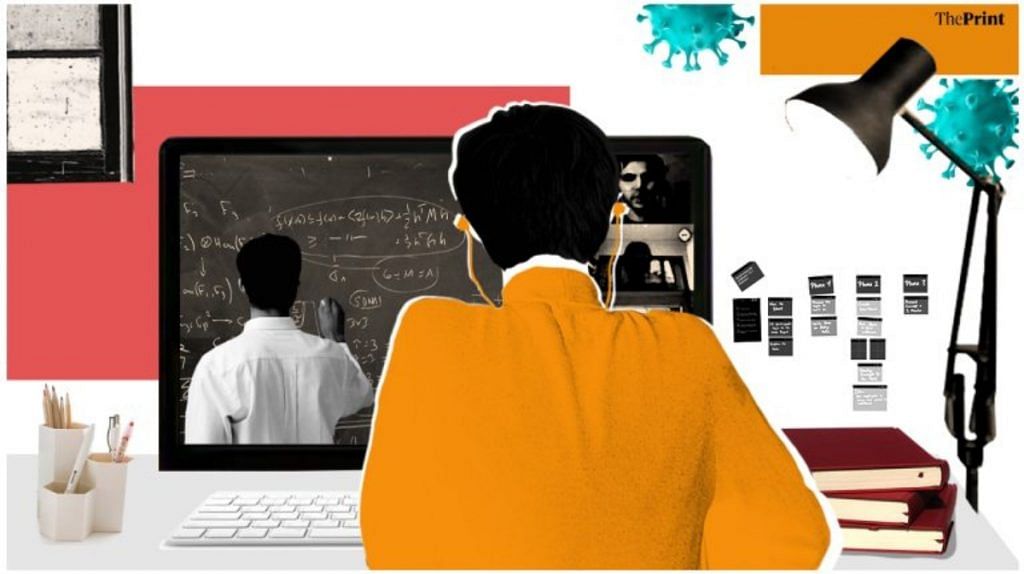New Delhi: An all-India survey conducted by the central government on Kendriya Vidyalayas (KVs), Jawahar Navodaya Vidyalayas (JNVs) and Central Board of Secondary Education (CBSE) schools has found that online learning during Covid-19 outbreak wasn’t a problem for them.
More than 60 per cent of students, parents and teachers in KVs, JNVs and CBSE schools found online learning “satisfactory”, according to the survey which had 34,598 participants, including students, parents, teachers and principals.
The survey added that the central government has now started mapping digital divide in schools of other boards and private schools, so that it can come up with an alternate method of teaching for those who are deprived of the online facilities.
Such students will be taught through TV, radio, newspapers and other means by involving their parents in the teaching process, it stated.
The Ministry of Education Wednesday issued ‘Student’s Learning Enhancement Guidelines’ as part of which the survey was released.
In the survey, 60-70 per cent participants said that online learning was “joyful and satisfactory” for them, only 20-30 per cent said that they “faced difficulties” and 10-20 per cent said that learning online was a “burden”.
The government survey also revealed that maximum stakeholders used mobile phones for their studies during the lockdown period, laptop was the second most preferred choice, and TV and radio were the least utilised devices for learning.
The survey further revealed that students found mathematics the most difficult subject to learn online.
Explaining the reason behind this, the survey report said, “Since, mathematics contains a number of concepts which require interaction, continuous support, monitoring from the teacher and these aspects were lacking in the online mode of teaching, it was found most difficult.”
After maths, students found science difficult to learn online as it involves practical components, which can only be done in laboratories and in the presence of teachers.
Few students — 17 per cent — found languages difficult to learn online.
Also read: Online classes now a culture in Covid times, says PM, hails New Education Policy
Using resources at home to teach students
The survey has been conducted with a view to address the issues related to gaps or loss of learning among students during and after the lockdown. Following the survey, the government aims to reach out to students, who do not have any digital device, and provide them with need-based interventions.
State governments have been asked to conduct a school-wise survey on students to map each child’s accessibility to digital devices.
Based on that, the government will intervene for students who do not have the required facilities. Such students will be taught through TV, radio, newspapers, food packets and other things available at home.
“For example, for a child in grade I, the learning outcome — associates words with pictures — can be easily taught with the use of resources available from or at home such as newspapers, food packets, things at home, TV programmes, nature, etc. All that will be needed is guidance to the parents,” the report said.
“In this manner, weekly, fortnightly, or monthly learning plans will need to be prepared for every learner for every grade,” it added.
The Ministry of Education has already come up with an alternate academic calendar developed by the National Council for Education Training and Research to address the learning gap created due to Covid-19.
Activities in the calendar also involved digital learning. However, there was a need to reach out to students who do not have digital learning facilities.
Also read: JEE aspirants have to sign Covid undertaking to write tests as SC refuses to postpone exam
